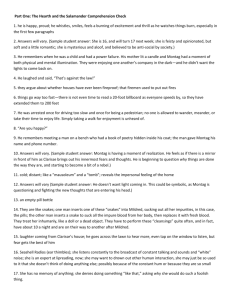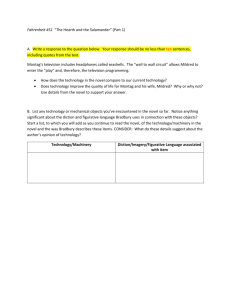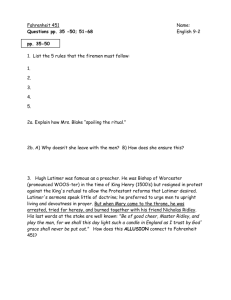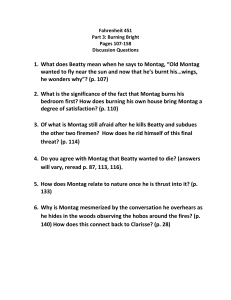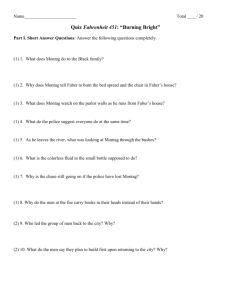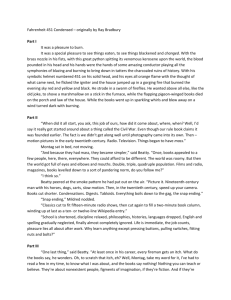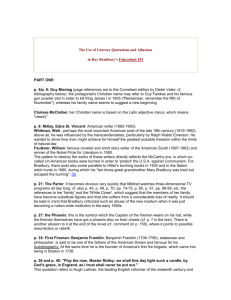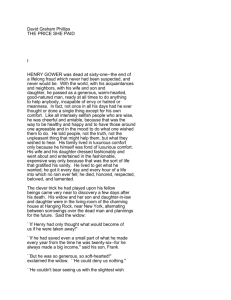Fahrenheit 451 & Pleasantville Essay: Direct and Indirect Quotations
advertisement
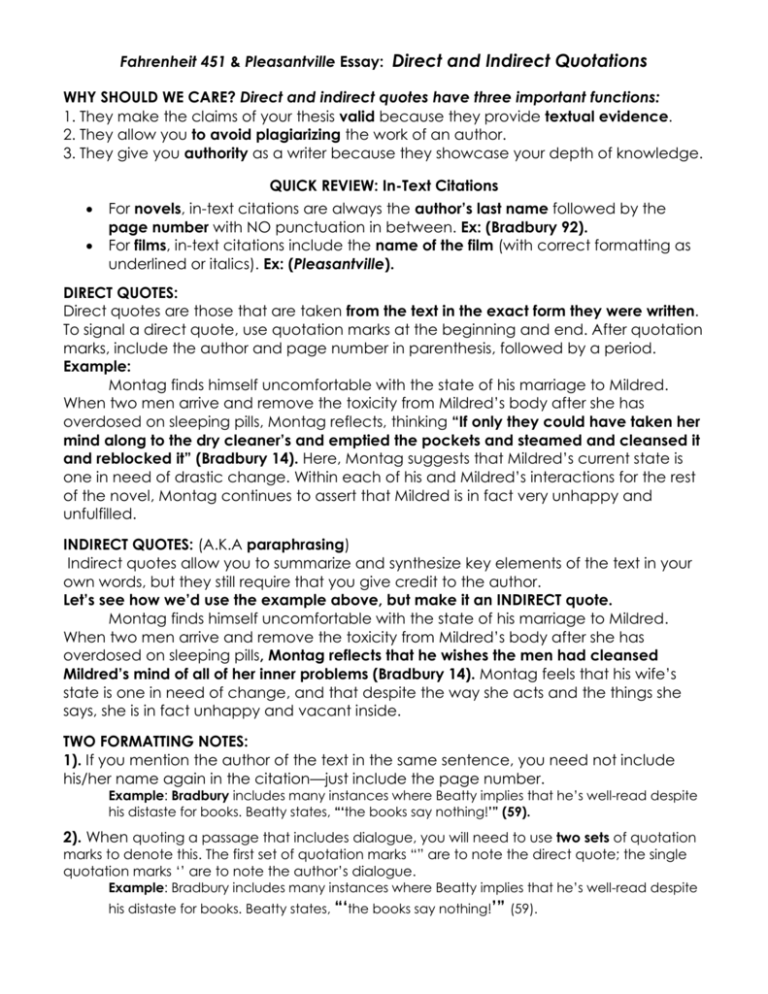
Fahrenheit 451 & Pleasantville Essay: Direct and Indirect Quotations WHY SHOULD WE CARE? Direct and indirect quotes have three important functions: 1. They make the claims of your thesis valid because they provide textual evidence. 2. They allow you to avoid plagiarizing the work of an author. 3. They give you authority as a writer because they showcase your depth of knowledge. QUICK REVIEW: In-Text Citations For novels, in-text citations are always the author’s last name followed by the page number with NO punctuation in between. Ex: (Bradbury 92). For films, in-text citations include the name of the film (with correct formatting as underlined or italics). Ex: (Pleasantville). DIRECT QUOTES: Direct quotes are those that are taken from the text in the exact form they were written. To signal a direct quote, use quotation marks at the beginning and end. After quotation marks, include the author and page number in parenthesis, followed by a period. Example: Montag finds himself uncomfortable with the state of his marriage to Mildred. When two men arrive and remove the toxicity from Mildred’s body after she has overdosed on sleeping pills, Montag reflects, thinking “If only they could have taken her mind along to the dry cleaner’s and emptied the pockets and steamed and cleansed it and reblocked it” (Bradbury 14). Here, Montag suggests that Mildred’s current state is one in need of drastic change. Within each of his and Mildred’s interactions for the rest of the novel, Montag continues to assert that Mildred is in fact very unhappy and unfulfilled. INDIRECT QUOTES: (A.K.A paraphrasing) Indirect quotes allow you to summarize and synthesize key elements of the text in your own words, but they still require that you give credit to the author. Let’s see how we’d use the example above, but make it an INDIRECT quote. Montag finds himself uncomfortable with the state of his marriage to Mildred. When two men arrive and remove the toxicity from Mildred’s body after she has overdosed on sleeping pills, Montag reflects that he wishes the men had cleansed Mildred’s mind of all of her inner problems (Bradbury 14). Montag feels that his wife’s state is one in need of change, and that despite the way she acts and the things she says, she is in fact unhappy and vacant inside. TWO FORMATTING NOTES: 1). If you mention the author of the text in the same sentence, you need not include his/her name again in the citation—just include the page number. Example: Bradbury includes many instances where Beatty implies that he’s well-read despite his distaste for books. Beatty states, “‘the books say nothing!’” (59). 2). When quoting a passage that includes dialogue, you will need to use two sets of quotation marks to denote this. The first set of quotation marks “” are to note the direct quote; the single quotation marks ‘’ are to note the author’s dialogue. Example: Bradbury includes many instances where Beatty implies that he’s well-read despite his distaste for books. Beatty states, “‘the books say nothing!’” (59).


